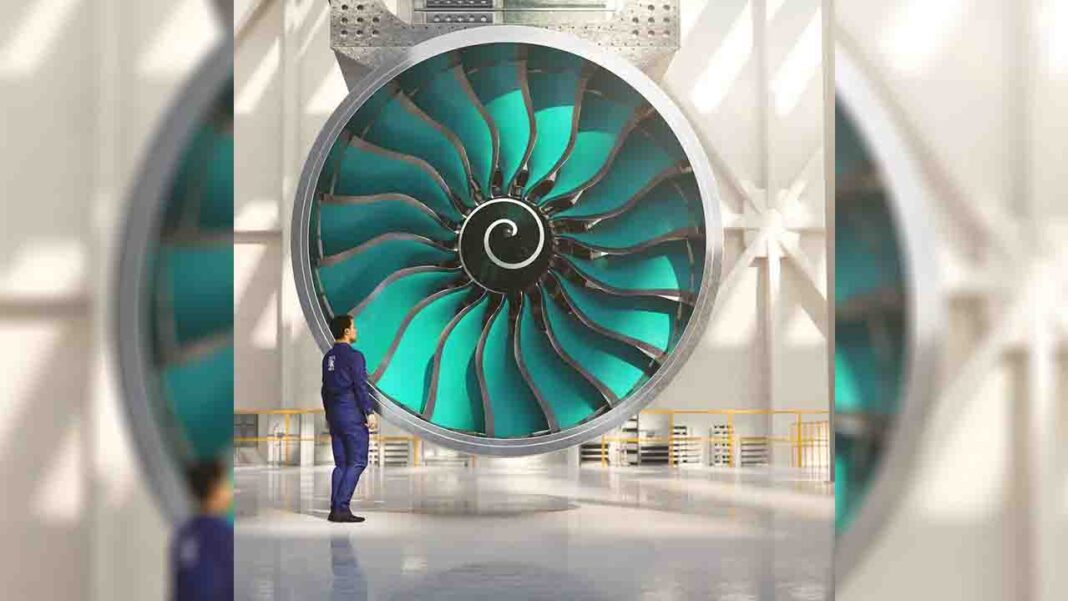(Commonwealth) _ Rolls-Royce, the British aerospace company, is leading the charge in developing sustainable solutions for greener aviation. With mounting pressure on the aviation industry to reduce its environmental footprint, Rolls-Royce is at the forefront of creating innovative engine technologies that will transform the way we fly.
Their focus on fuel efficiency, alternative fuels such as sustainable aviation fuels (SAFs), electric propulsion systems, and adopting circular economy practices positions Rolls-Royce as a key driver of change in the industry. By prioritizing sustainability, Rolls-Royce is paving the way for a future of aviation that is not only more environmentally friendly but also economically viable.
One of the key areas of focus for Rolls-Royce is the development of more fuel-efficient engines. Traditional jet engines have been a significant contributor to greenhouse gas emissions, but Rolls-Royce is determined to change that. They have been investing heavily in research and development to create engines that are not only more powerful but also significantly more environmentally friendly.
One groundbreaking technology that Rolls-Royce has been working on is the UltraFan engine. This next-generation engine promises to be the most efficient and sustainable engine ever created. It utilizes advanced materials and aerodynamic designs to reduce fuel consumption and emissions. The UltraFan engine is expected to offer a 25% improvement in fuel efficiency compared to its predecessors, making it a game-changer for the aviation industry.
In addition to fuel efficiency, Rolls-Royce is also exploring alternative fuel options for aviation. Sustainable aviation fuels (SAFs) are gaining traction as a viable solution to reduce carbon emissions from flights. Rolls-Royce has been actively involved in testing and certifying SAFs to ensure their compatibility with their engines. By supporting the use of SAFs, Rolls-Royce is helping to create a greener and more sustainable aviation industry.
Rolls-Royce is also pioneering electric and hybrid-electric propulsion systems for aircraft. Electric propulsion has already proven to be successful in the automotive industry, and Rolls-Royce is adapting this technology for aviation purposes. They are developing electric and hybrid-electric engines that can power smaller aircraft, such as regional planes and air taxis. These cleaner and quieter propulsion systems have the potential to transform short-haul flights and reduce emissions significantly.
Moreover, Rolls-Royce is committed to promoting a circular economy in aviation. They are exploring ways to recycle and reuse engine components, reducing waste and minimizing the environmental impact of their operations. By implementing sustainable practices throughout the manufacturing process, Rolls-Royce aims to achieve a more sustainable and environmentally responsible aviation industry.
The efforts of Rolls-Royce in developing greener aviation technologies have far-reaching implications. Not only will these innovations help reduce carbon emissions and combat climate change, but they will also lead to cost savings for airlines. Fuel is one of the most significant expenses for airlines, and more fuel-efficient engines will help lower operating costs. This, in turn, can make air travel more affordable and accessible to a larger number of people.
Furthermore, the greener aviation technologies being developed by Rolls-Royce will enhance the reputation of the aviation industry. Concerns about the environmental impact of flying have been on the rise, and by actively working towards sustainable solutions, Rolls-Royce is demonstrating its commitment to addressing these concerns. This can help rebuild public trust in the aviation sector and pave the way for a more sustainable future of air travel.
Rolls-Royce is playing a crucial role in shaping the future of greener aviation. Through their advancements in fuel-efficient engines, exploration of alternative fuels, development of electric propulsion systems, and commitment to a circular economy, they are leading the way toward a more sustainable aviation industry. As their technologies become more widespread and adopted by airlines worldwide, we can look forward to a future where flying is not only faster and more convenient but also greener and more environmentally friendly.
















